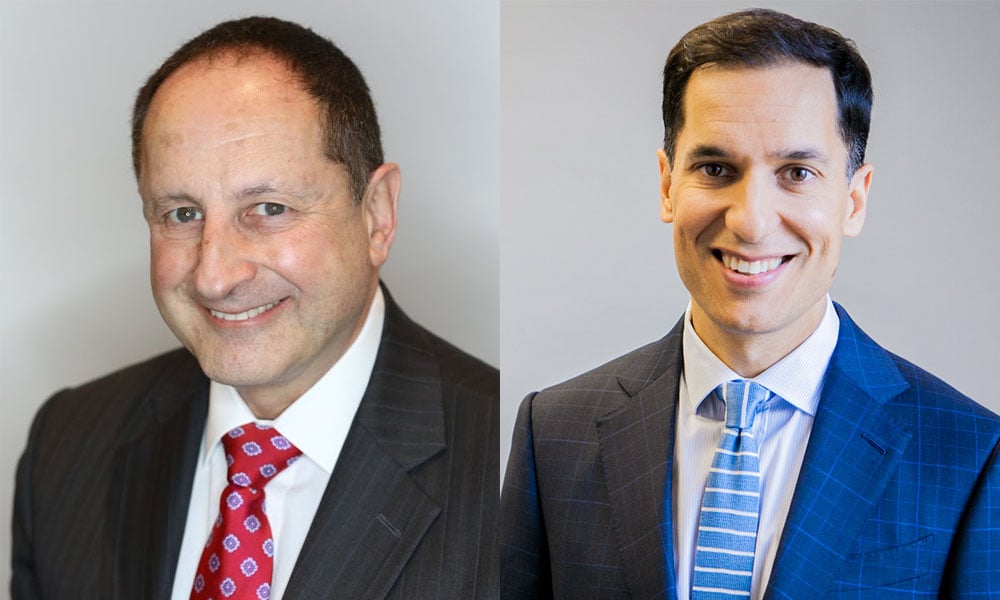
Feds should revisit whether consultants should be allowed to operate independently: lawyer

The Federal Court has dismissed an application for judicial review brought by an immigration consultant who misrepresented the rules of the refugee sponsorship program for Syrian and Iraqi refugees and took more than $110,000 in prohibited fees from her clients.
Abeer Qita, a former consultant, sought judicial review of the decision by the Immigration Consultants of Canada Regulatory Counsel (ICCRC), which found she had breached its Code of Professional Ethics and revoked her license. The ICCRC is the national regulatory body overseeing licensed immigration consultants.
“At the height of the Syrian refugee crisis, when the world saw a humanitarian catastrophe, Ms. Abeer Qita, a former immigration consultant, saw an economic opportunity,” reads the first line of Federal Court Justice Shirzad Ahmed’s reasons.
Justice Ahmed dismissed the application on the sole issue of whether the decision by the ICCRC’s discipline committee was reasonable.
“In the last couple of years, we have read a number of decisions from the Federal Court involving consultants engaged in outrageous type of conduct,” says Immigration lawyer Sergio Karas.
He says the government needs to revisit whether consultants should be allowed to operate independently.
“It's been a bone of contention for decades, actually, especially after they became regulated,” says Karas, a certified specialist in immigration law. “And, as members of the bar, we’re basically tired of reading these types of decisions involving consultants who are ostensibly and apparently regulated but they keep on engaging in this type of conduct.”
Ravi Jain is a managing senior lawyer at Green and Spiegel LLP in Toronto and immediate past chair of the Canadian Bar Association Immigration Law Section.
“Lawyers typically have four years of a Bachelors degree followed by three years of law school and then articling and the call to the bar,” he says. “They have a regulator that takes complaints seriously and investigates thoroughly. No lawyer wants to lose all that they have worked so hard for and all the investment that has gone into their education and training.”
“Thus, the public is protected best when a lawyer’s license is on the hook. We have seen serious difficulties with non-lawyers practicing law for many decades. The impact on vulnerable and often racialized victims is often life-altering.”
But immigration consulting is like any other profession, which has challenges it confronts and then evolves, says Rupali Gulati, an immigration consultant and managing director of Synergy Immigration Inc. in Mississauga, Ont.
“The answer is always stronger education, stronger CPD and stronger regulation,” she says. “The Immigration Consultant community continuously works on this. It is evidenced by the Queen’s University Grad. Diploma in Immigration and Citizenship Law and the advent of the College of Immigration and Citizenship Consultants.”
Consultant Al Parsai, CEO of Parsai Immigration Services, says that it is unfair to judge the consultant community based on the actions of bad apples, adding that there are examples of immigration lawyers being disbarred for similar conduct.
“We never judge the whole profession because of a small group of wrongdoers,” says Parsai. “The same issue is true about immigration consultants.”
In 2015, amid the Syrian civil war and the reign of ISIS, the Minister of Citizenship and Immigration introduced a temporary policy for sponsoring Syrian and Iraqi refugees. The policy exempted them from certain standard requirements under the sponsorship rules, including a processing fee and that they have refugee status from either the United Nations High Commissioner for Refugees or a foreign state.
In Qita’s case at the Federal Court, Immigration law experts testified on the fundamental principles of the sponsorship program: Sponsors must provide “settlement funds” to refugees; refugees do not have to contribute to settlement funds nor pay the sponsor; the refugee may pay some or all settlement costs once in Canada, but that payment must not be made directly to the sponsor and sponsors “must not profit from the sponsorship.” The experts added that, if fees are permitted, refugees must not pay them directly to the sponsor.
Fast To Canada partnered with Canada Newcomers and Immigration Association to sponsor refugees on the temporary policy. Qita built up 210 clients and marketed her services to those “who had sufficient means to support themselves after arriving in Canada,” said the Federal Court’s decision.
The ICCRC launched an investigation into Qita after a CBC article said her company was requiring refugee claimants to pay settlement funds, counter to sponsorship rules.
The ICCRC found Qita committed numerous breaches. She required clients to pay their own settlement funds. She collected donations and fees, which some clients believed were mandatory. Qita had clients pay a $678 fee to disburse settlement funds, which, for the 175 who had their applications refused and did not receive those funds back, amounted to more than $110,000 in “unearned payments” – prohibited profit under the sponsorship rules. For the clients entitled to refunds, she also refused to refund payments until they signed a waiver releasing her from liability.
The ICCRC also found Qita had misrepresented the temporary policy, saying that rejection was impossible unless “the client had significant medical or security issues or gave false information in their application,” said Justice Shirzad. And she failed to inform or lied about why applications were rejected.
In April 2020, the ICCRC revoked Qita’s membership and ordered her to pay $50,000 in costs.